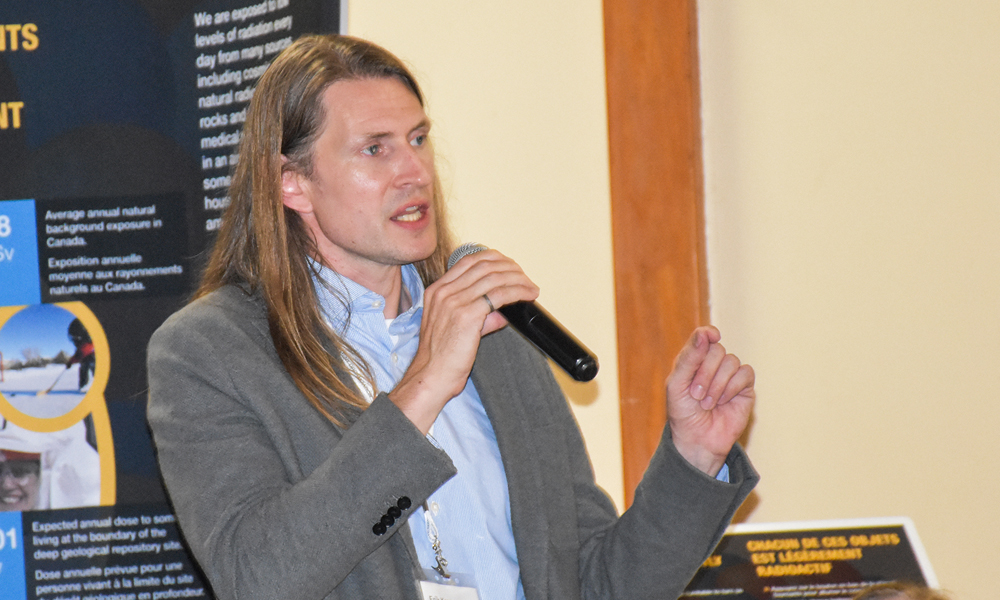The first-ever Huron-Kinloss Nuclear Waste Management Symposium brought together local residents, as well as staff from the Nuclear Waste Management Organization (NWMO), for a day of discussion and learning about Canada’s plan for the safe, long-term management of used nuclear fuel.
“This is about sharing knowledge and engaging the community,” said Huron-Kinloss Mayor Mitch Twolan. “This is the first symposium of its kind, and it brought together an unprecedented number of technical experts from the NWMO and community members for learning and dialogue.”
The idea for the symposium was driven by the Township of Huron-Kinloss to provide a forum for local residents and NWMO subject matter experts to explore the history behind Canada’s plan (Adaptive Phased Management) and the site selection process.
Huron-Kinloss Nuclear Waste Community Advisory Committee member David Grant and NWMO Senior Advisor for Indigenous Knowledge Jessica Perritt shared hosting responsibilities for the event.
Ms. Perritt, a member of the Chippewas of Nawash Unceded First Nation, spoke about the NWMO’s commitment to interweaving Indigenous Knowledge with western science and creating constructive relationships built on respect with Indigenous communities. She highlighted the NWMO’s recent release of a Reconciliation Statement.
“As we continue to move through the site selection process and engage with communities, it is important that we work with Indigenous communities to find ways to interweave Indigenous Knowledge,” said Ms. Perritt. “This will help us achieve greater understanding and lead to better decision-making as we advance Canada’s plan.”
Specialists in attendance included Dr. Erik Kremer, who is part of the Safety and Technical Research group at the NWMO. His work focuses on how a deep geological repository will protect people and the environment over hundreds of years.
“I am always so thrilled to share information related to the technical program at the NWMO,” Dr. Kremer said, remarking on the depth of questions posed by locals. “My colleagues and I are committed to ensuring the protection of both people and the environment. Part of our role is sharing our knowledge, and ensuring the people and communities that are showing leadership on behalf of all Canadians have the information they need to make informed decisions in the future.”

